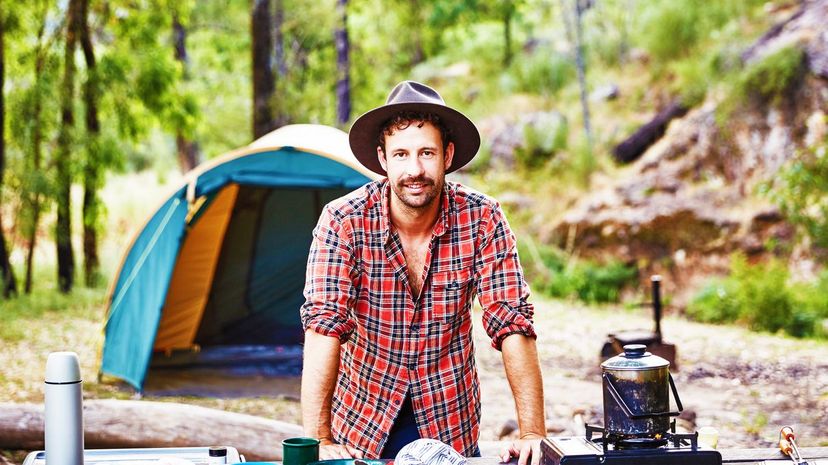
About This Quiz
Far too many people know precious little about the land Down Under. Sure, you've probably seen that episode of "The Simpsons" where Bart learns that toilets swirl the opposite way in Australia than they do in the U.S because of the Coriolis Effect (though this isn't always true). You may have even told someone to throw another shrimp on the barbie once or twice as Paul Hogan did in a series of '80s Aussie tourism ads.Â
But Australia is so much more than silly catchphrases and random facts learned from halfway 'round the globe. In fact, despite the distance between the two, this nation has a lot in common with the United States. Both were once occupied by native people, many of whom were largely lost to history once European explorers arrived around the year 1500. Each of these countries was once a British colony that eventually gained independence, then united to form powerful nations.Â
Of course, despite these similarities, Australia is a unique nation all its own. This quiz covers topics that define the land Down Under, like history, geography, pop culture, local lingo and yes, kangaroos. Think you can pull off a perfect score? Take this quiz to test your Aussie IQ!
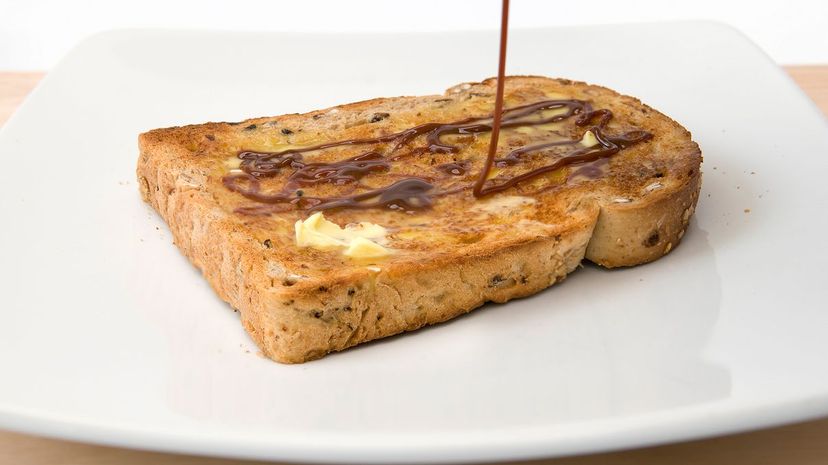
Vegemite's a spread made from brewer's yeast, spices and various veggies. This dark, salty spread has a very distinct flavor, and you either love it or hate it ... unless you're Australian, in which case Vegemite love is part of your DNA.
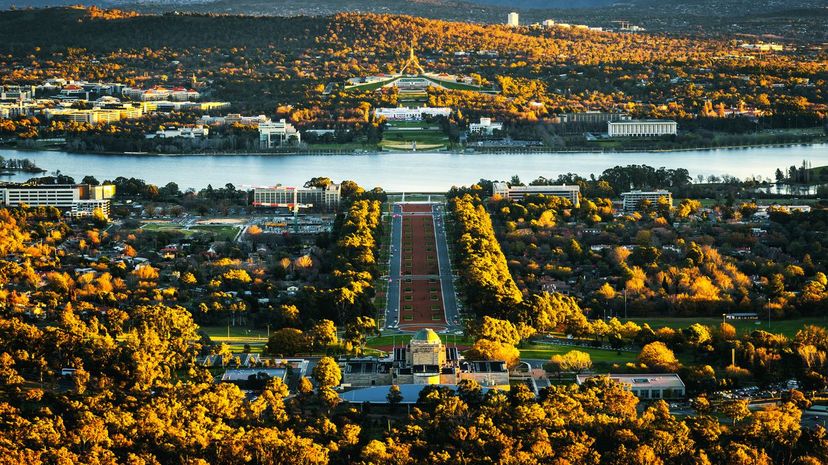
At the start of the 20th century when Australia was in need of a capital, leaders from the two major cities at the time, Sydney and Melbourne, both fought to make their city the center of the new nation. Canberra, which is located 160 miles southwest of Sydney and 400 miles away from Melbourne, was selected as a compromise.
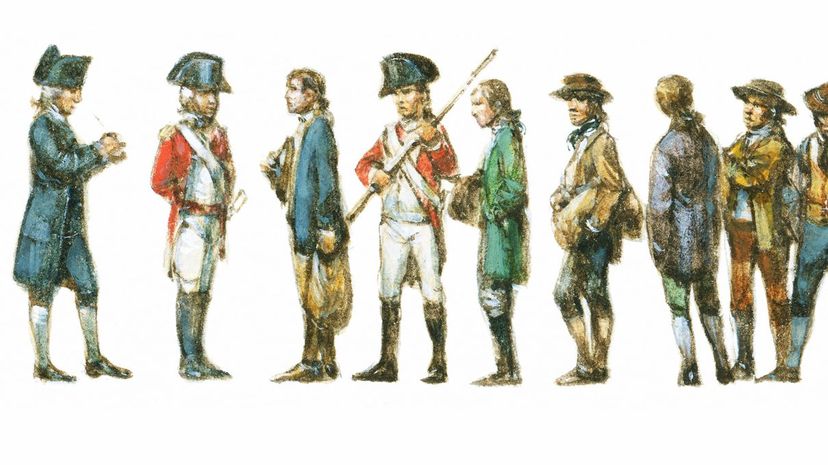
Britain used Australia as a free-range prison starting in the 1780s, setting up penal colonies for political enemies and criminals alike. By the mid-1800s, more than 160,000 convicts were shipped from the British Isles to Australia. Today, one in five Aussies can trace their lineage to these criminal ancestors, according to the BBC.
Advertisement
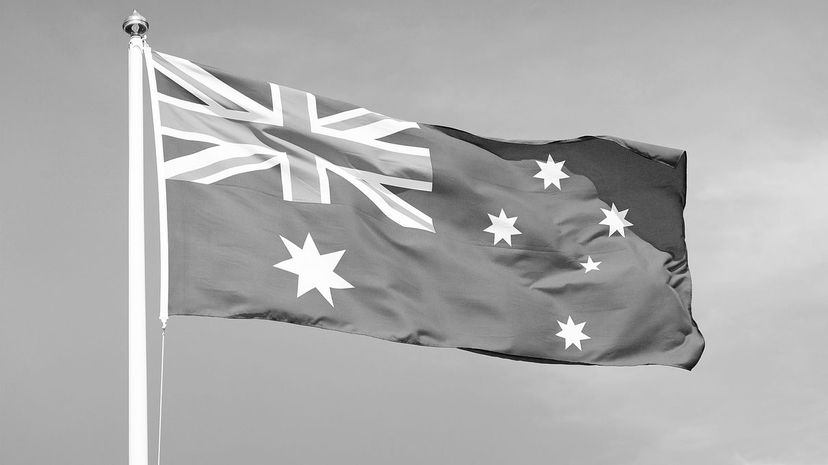
The Australian flag was adopted in the 1950s and is almost all blue. It features a Union Jack (that's the British flag design) in the upper left, as well as a large white seven-pointed star representing the various territories and future states of the nation.
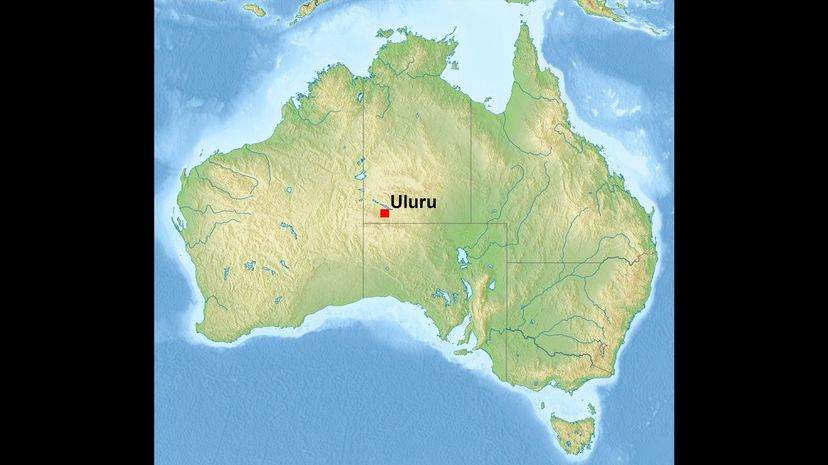
Also known as Ayers Rock, Uluru is a sandstone structure rising out of the Earth near Alice Springs in Australia's Northern Territory. Measuring 6 miles in circumference, it is a sacred site to the native people of the land and has been occupied for an estimated 10,000 years.
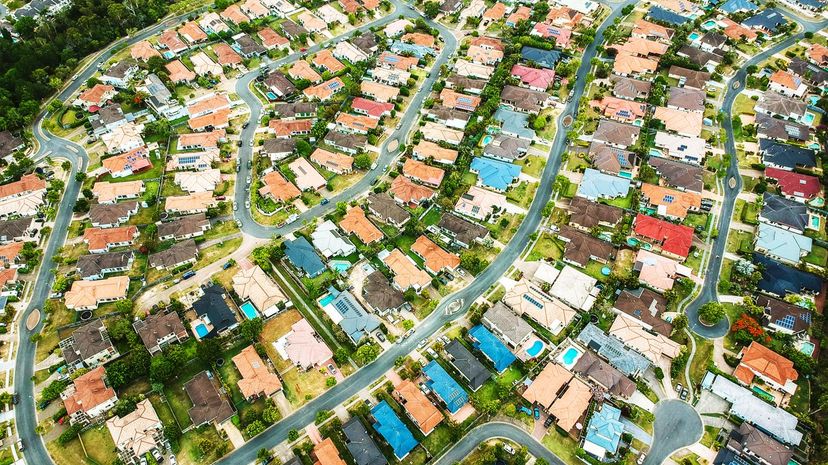
There are around 25 million Aussies as of 2019, and roughly a third of them were born overseas, according to the Australian Bureau of Statistics. Compare that to the U.S., which is around the same size as Australia but has more than 300 million people, with just under 14% foreign-born.
Advertisement
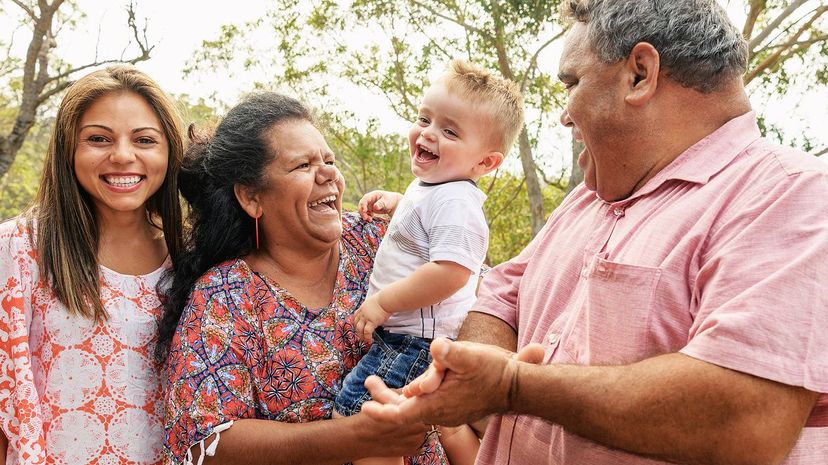
Roughly 3 % of Aussies are of Aboriginal heritage, which means they are descended from people who lived on the continent before European colonization. When the Europeans arrived in the 16th century, Australia had at least 400 distinct groups of people who spoke hundreds of different languages, including the Nunga, Palawah, Murri and Gunggari.
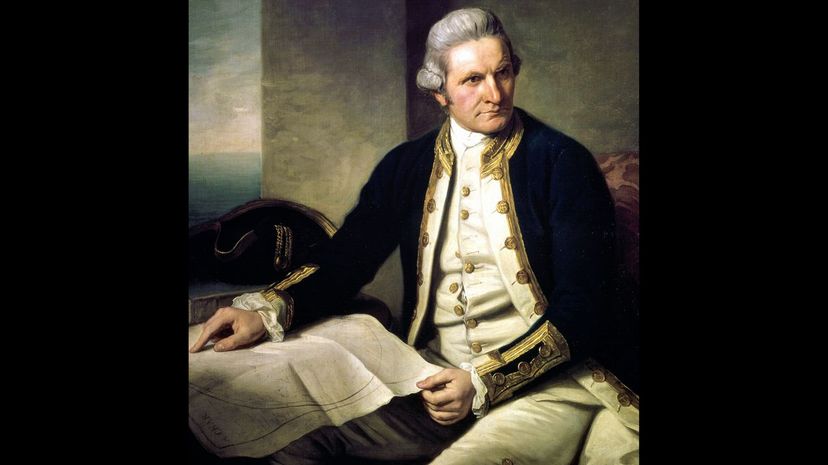
The million or so people living in Australia before European colonization may beg to differ, but the history books officially list Captain James Cook of England as being the "discoverer" of Australia in 1770. While the Dutch got their earlier, sailing to Tasmania in the 1640s, they never bothered to colonize the land the way the Brits did a century earlier.
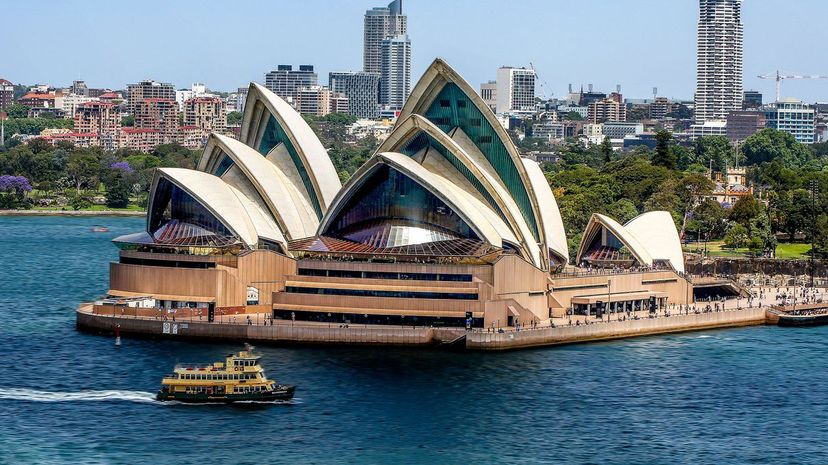
Construction began in 1959, but Sydney's iconic opera house didn't open until 1973. Built in the Expressionist style, it resembles a series of giant white shells and welcomes more than 8 million visitors each year.
Advertisement
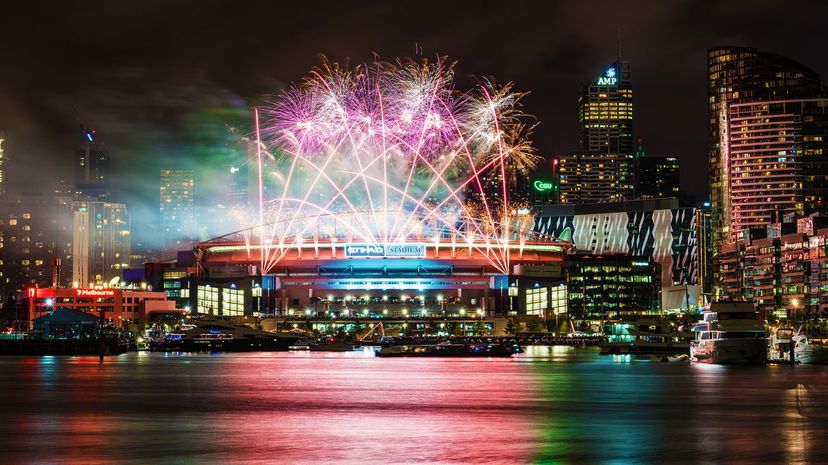
Australia Day on January 26th is one of the nation's biggest holidays. This is the date that citizens commemorate the 1788 arrival of British ships to Australian shores, which was the start of European colonization on the continent.
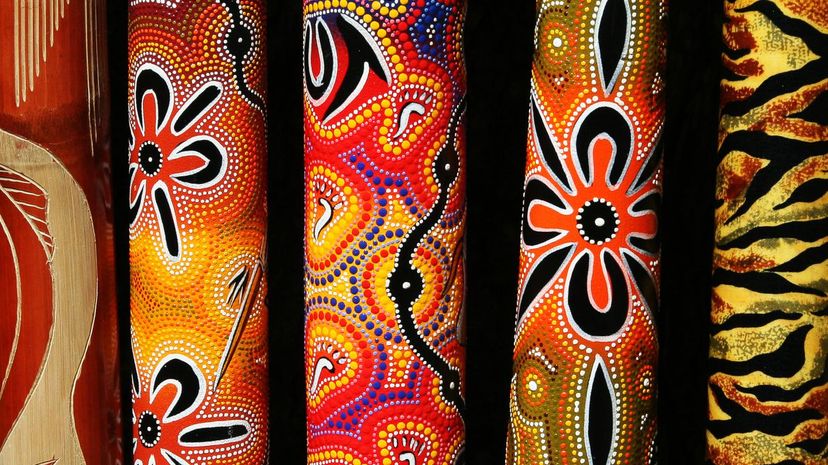
The didgeridoo is an instrument native Aussies have been playing for at least 1,000 years. This straight trumpet measures from 3 to 10 feet long and plays an important role in Aboriginal ceremonies and traditions.
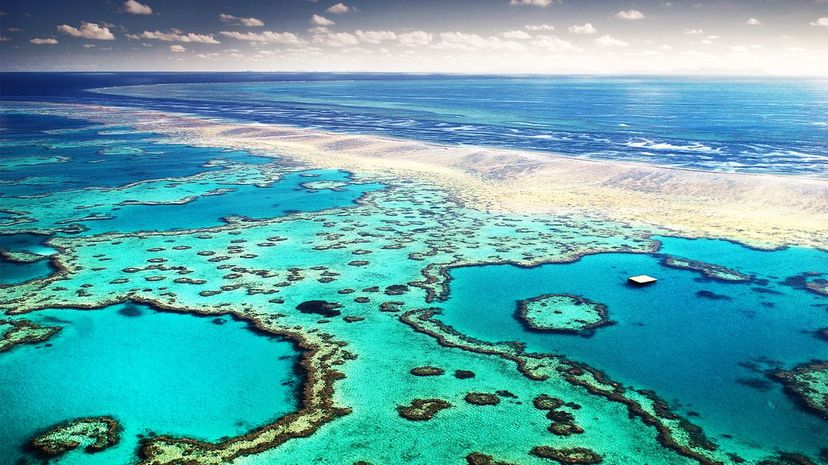
The Great Barrier Reef is a natural wonderland which runs roughly parallel to the coast of Queensland on Australia's northeast coast. At more than 1,800 miles long, it consists of at least 100 islands, contains 600 types of coral and is home to 1,600 fish species, according to the Great Barrier Reef Marine Park Authority. It's also a bucket-list destination for snorkelers and scuba divers 'round the world.
Advertisement
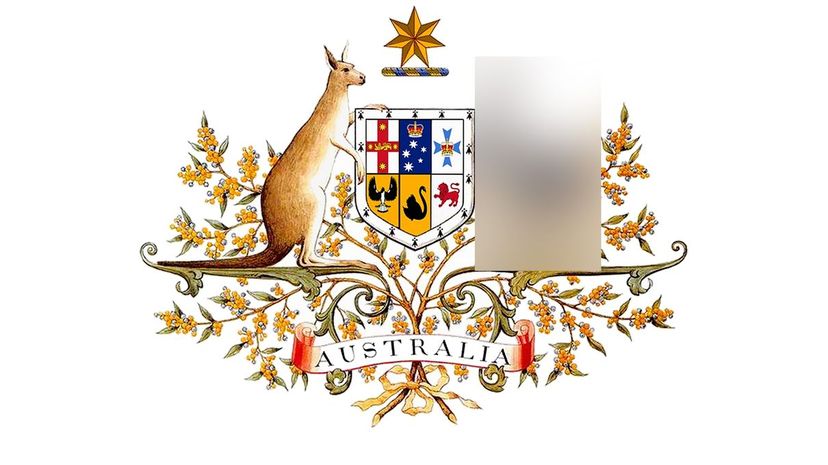
The Australian Coat of Arms prominently features two animals, a kangaroo and an emu, holding up a shield. The shield includes six different symbols to represent the nation's territories, including a black swan for Western Australia and a red lion for Tasmania.
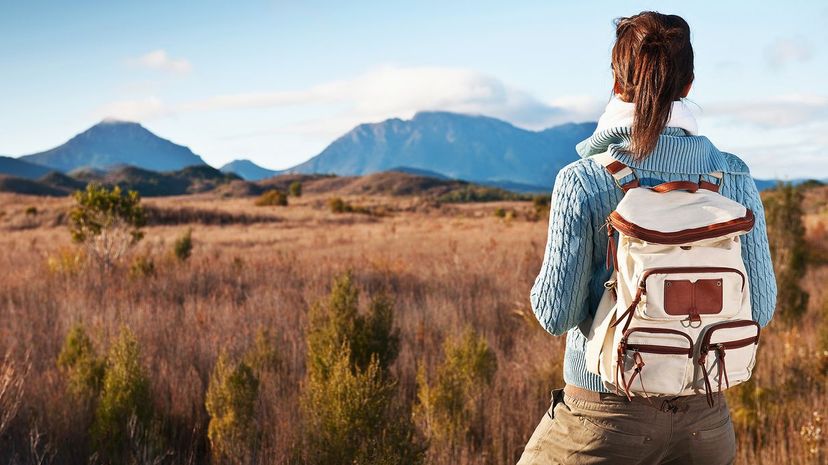
Believe it or not, there were no hoofed animals in Australia before Europeans brought horses to the country in the 18th century. Today, thousands of these animals' ancestors roam freely across the nation, though the largest number live in the Northern Territory.
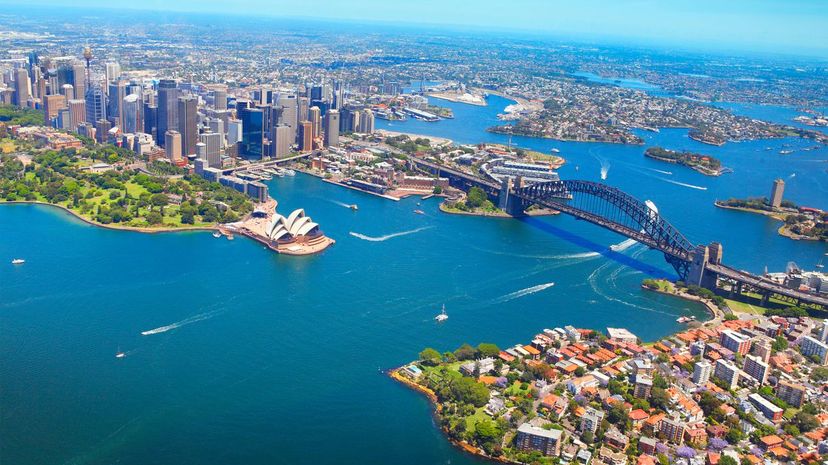
Located on the coast in New South Wales, Sydney is the most populous Aussie city with just over 5 million residents, followed by Melbourne, which has just under 5 million. Brisbane has roughly half that number, followed by Perth at 2 million and Adelaide with 1.4 million.
Advertisement
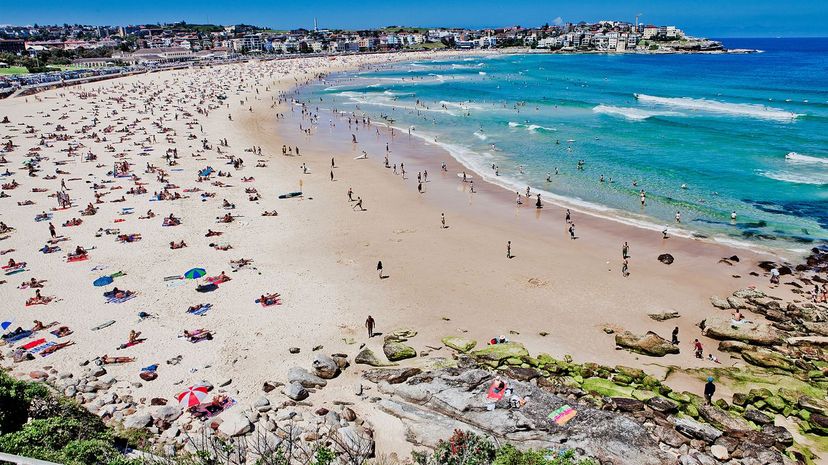
Its name comes from an Aboriginal term meaning "water breaking over rocks," but most folks who head to Bondi Beach outside of Sydney are probably only focused on sun, surf and sand. It's only half a mile long, but Bondi has attracted sun worshipers for hundreds or years and has actually served as a public beach since the 1880s.
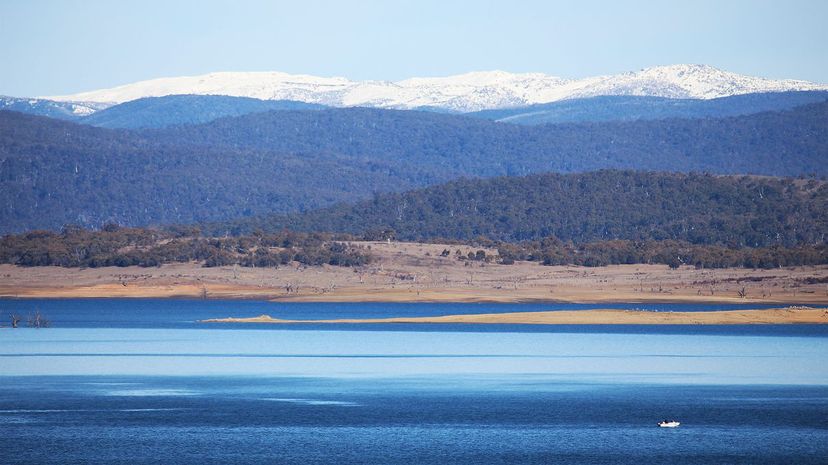
At just 7,300 feet, Mount Kosciuszko is Australia's highest peak. As the tallest point on the continent, it's also one of the Seven Summits that climbing devotees will scale in a list that includes names like K2, Everest and Kilimanjaro. Interestingly enough, Kosciuszko is an easy climb compared to these other mountains and can be scaled by many fit adults in just a few hours.
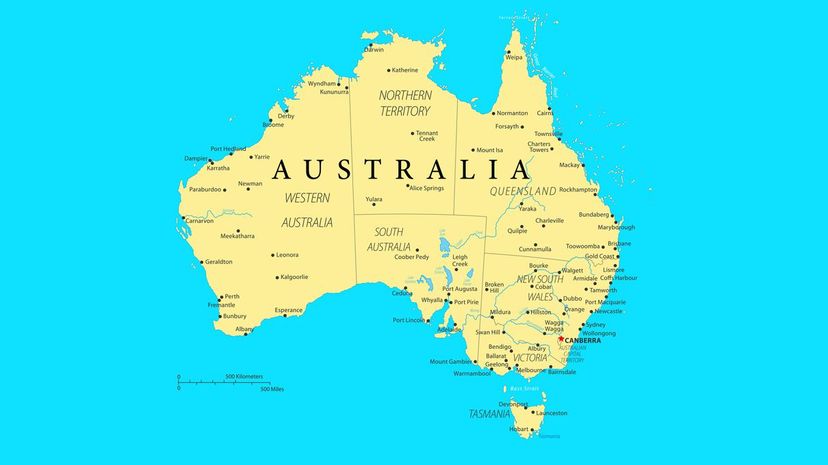
It was January 1, 1901, when the various territories on the continent joined forces to become the Commonwealth of Australia. At the time, each of the former colonies was working under its own laws, but joining forces created a nation of 3 million people instead of six much smaller and less effective territories.
Advertisement
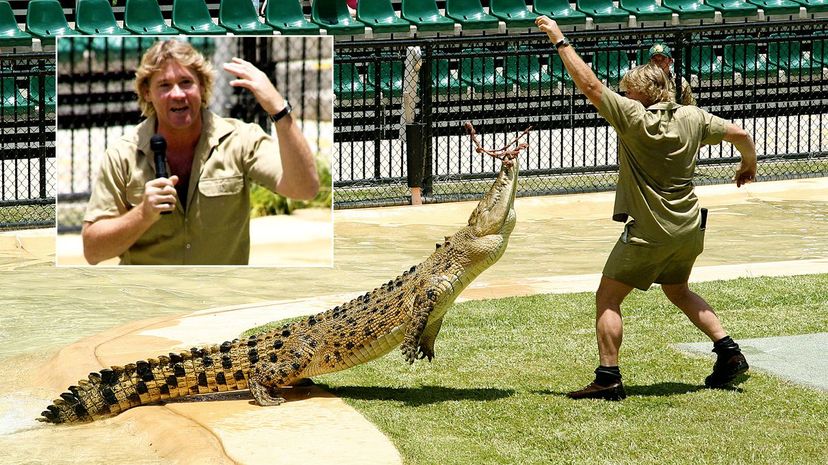
While filming a TV show in 2006, Steve Irwin was killed in a freak encounter with a stingray. His legend lives on with his children, as they follow in his footsteps, and with the Australia Zoo, which was started by his parents and is still owned and managed by his family to this day.
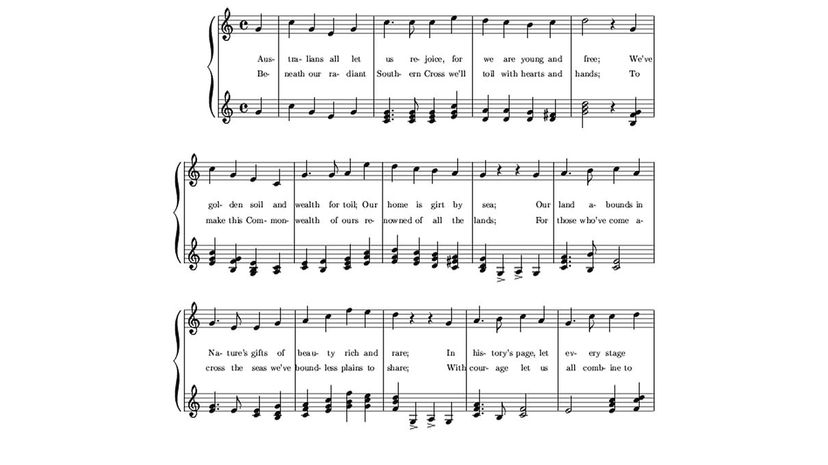
As a former British colony, Australia used "God Save the Queen" as their anthem until 1984, when it was officially replaced by "Advance Australia Fair." The tune includes pretty optimistic lyrics, such as "Let us all rejoice, for we are young and free!"
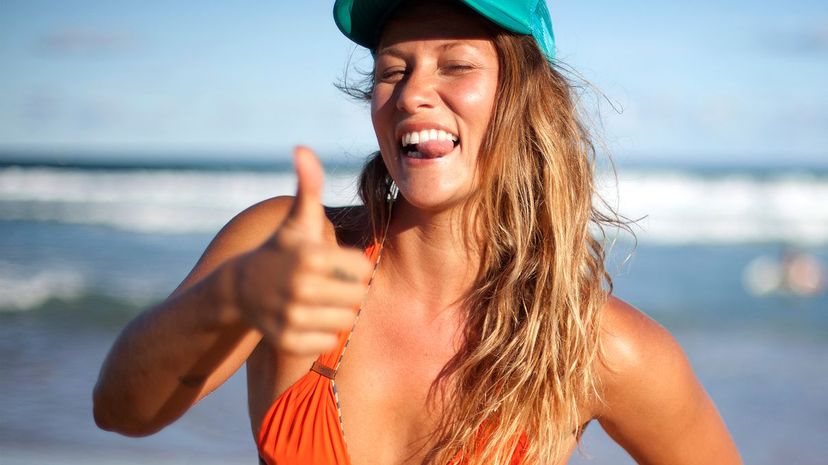
Aussies loves to abbreviate ... G'day, anyone? That's why a friendly "Arvo" is just a quick way to say afternoon. It could mean "Good afternoon" or when used in a different context, may also mean something like "I'll see you this afternoon" or "I'll be working this afternoon."
Advertisement
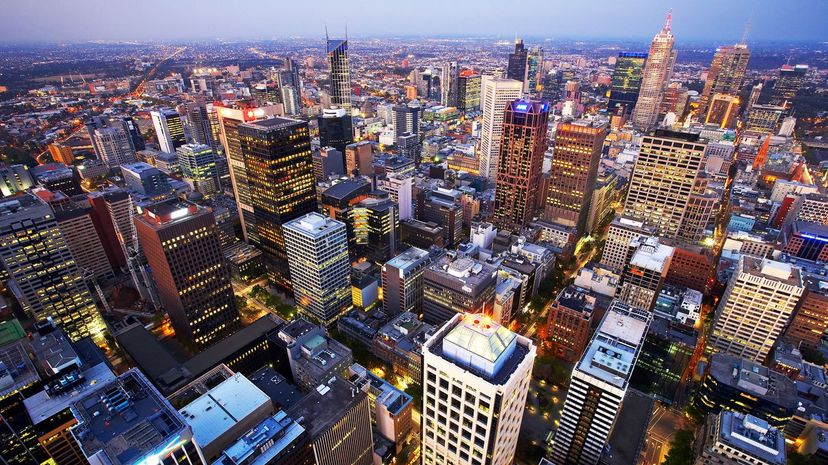
Victoria was a British colony in 1851 when a massive gold rush began in the area. The gold helped to make Melbourne into a major financial center but also triggered the Eureka Stockade, an 1854 rebellion by miners who didn't want to pay the British government for expensive mining licenses.
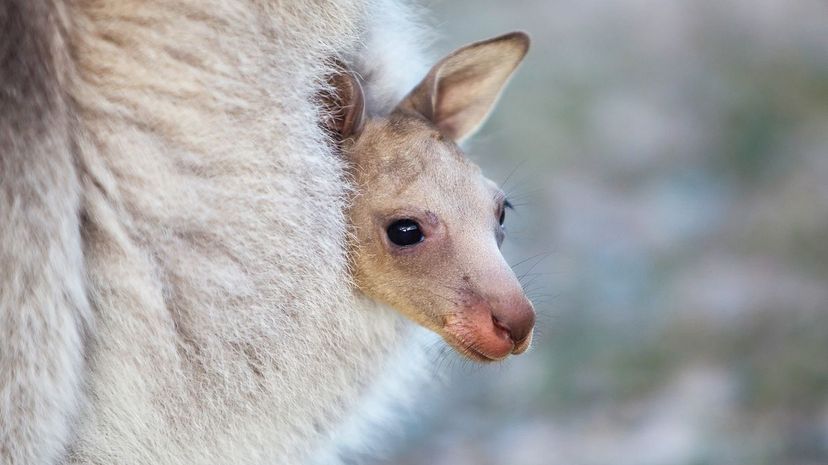
There are an estimated 50 million kangaroos in Australia, which is more than twice the number of people in the country! There are so many that they're considered a pest because they threaten crops and livestock and end up in a whole lot of collisions with cars.
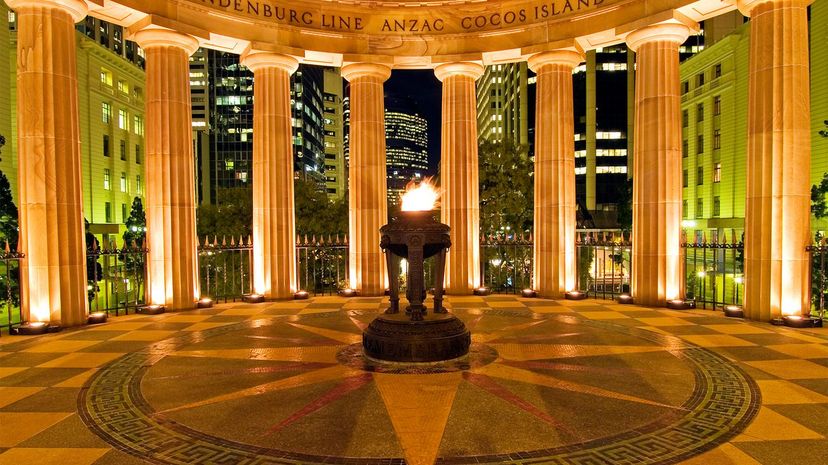
Australian and New Zealand forces joined together to fight in the Gallipoli campaign in 1915, with more than 8,000 members of this combined Anzac squad losing their lives in WWI. Today Anzac Day is held every April 25th and is dedicated to the memory of not only WWI veterans but to Aussie soldiers who fought in any war.
Advertisement
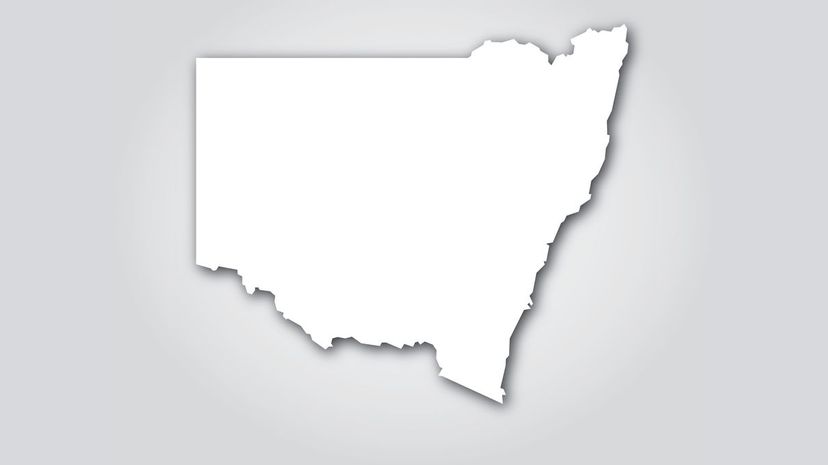
In terms of population, New South Wales (where Sydney is located) is Australia's largest territory with 8 million people. Western Australia is the largest of the six territories by area, but is home to only 2.5 million citizens or so
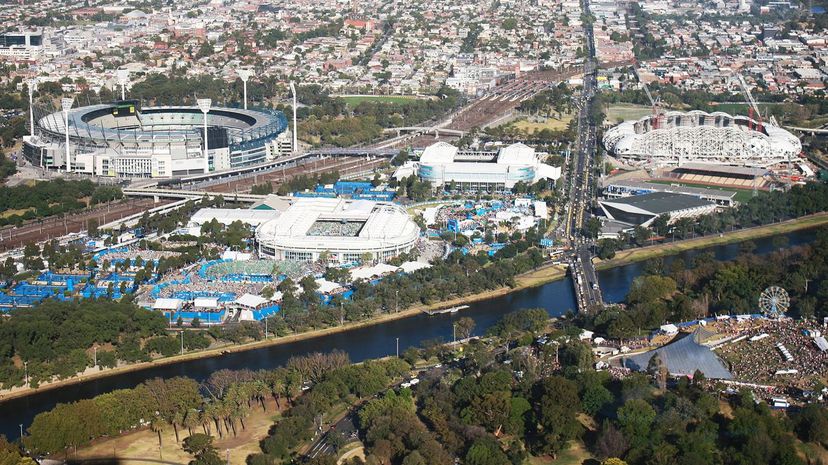
Melbourne became the first Australian city, and the first city in the Southern Hemisphere, to host the Olympics back in 1956. One highlight was track star Betty Cuthbert, who won three golds in her native country to make her a superstar of the games.

As of 2019, nearly 5% of Australians speak Mandarin, following by Arabic, Cantonese, Vietnamese and Greek. A full one-third of the people in Sydney speak a language other than English at home, according to SBS News.
Advertisement

While soccer and cricket are popular with Australian sports fans, nothing beats rugby in the ratings. In fact, Australia's pro rugby league, the NRL, pulled in 94 million viewers during the 2018 season, according to the nation's Ministry of Sport.
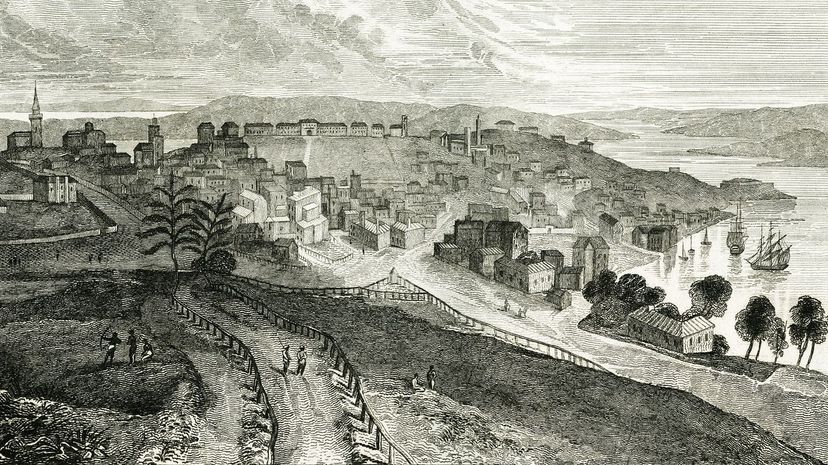
The Aboriginals called it Warrane, but European settlers eventually used the name Sydney Cove for their new city near Botany Bay. The settlement, which was established because of plentiful fresh water supply in the area, sits on the south shore of what we now know as Sydney Harbor.
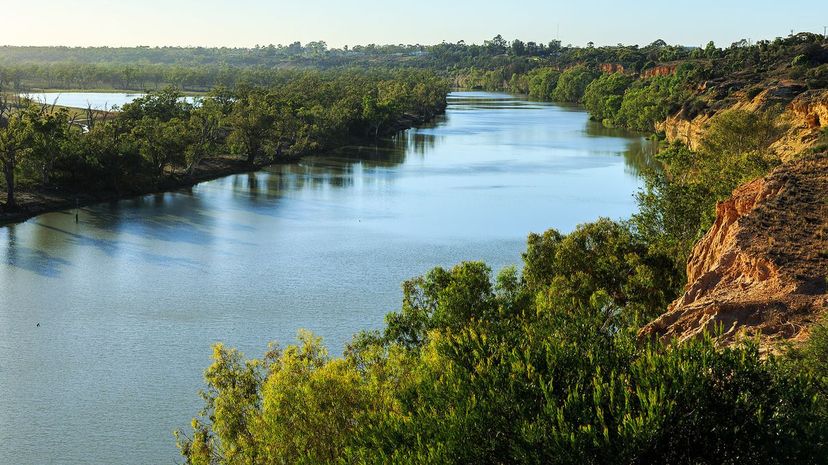
At 1,570 miles, the River Murray in Southwest Australia is the nation's longest river. It far exceeds the Murrumbidgee at 923 miles and the Darling River at 915 miles.
Advertisement
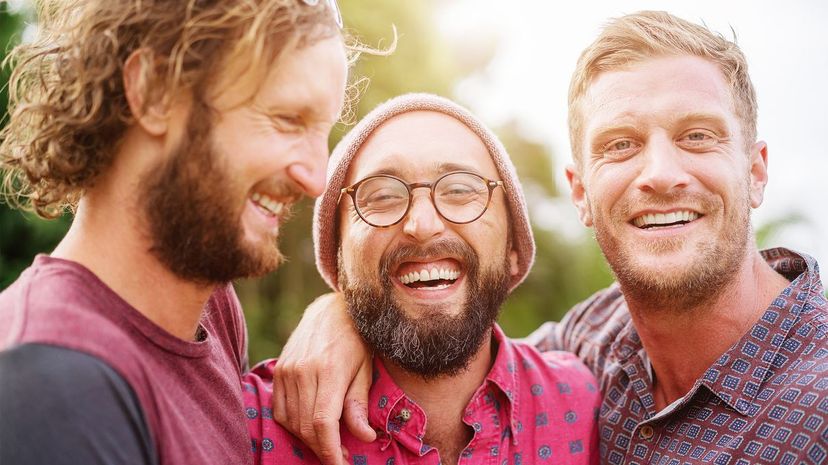
Stubbie is Aussie slang for a small bottle of beer, using measuring around 375 ml, or 12 ounces. Want a 24-pack? That's a slab, and you can get it at the bottle-o, or liquor store.
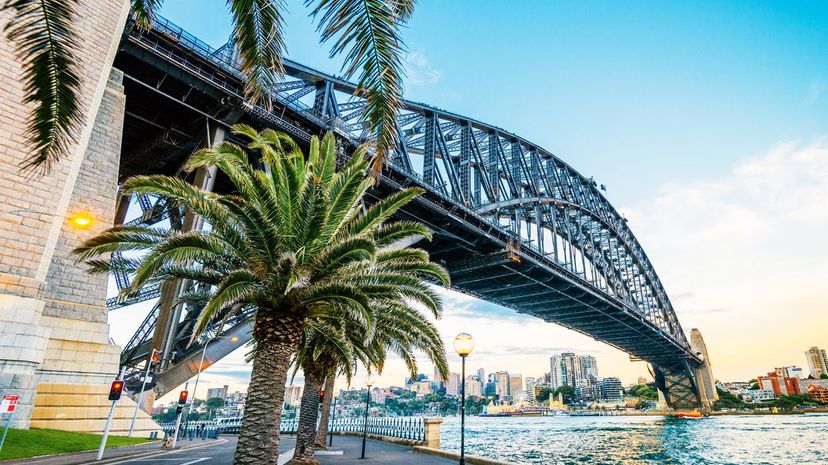
The Harbor Bridge connects Sydney's central business area to the North Shore. Nicknamed "The Coathanger" because of its design, the bridge measures 3,700 feet long and opened to traffic in 1932.
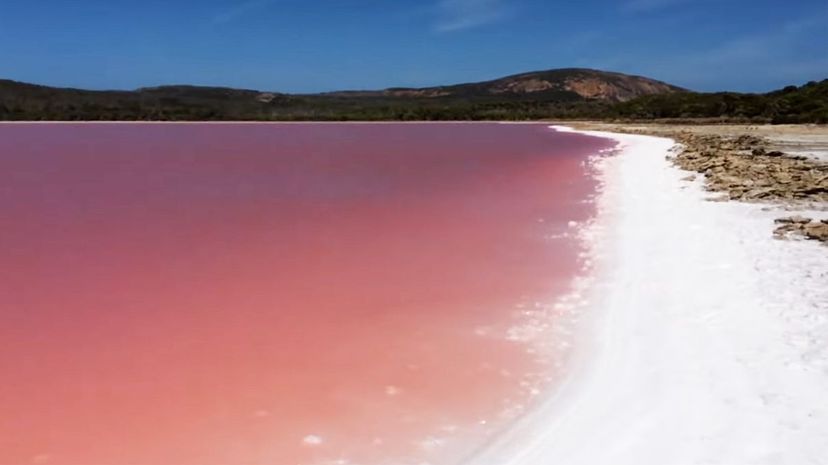
As salty as the Dead Sea, Lake Hillier in Western Australia is famous for its bubblegum-pink color, and it's not the only pink lake in the country. Best of all, this lake is actually safe to swim in if you can reach its remote location because the color comes from algae, not chemicals.
Advertisement
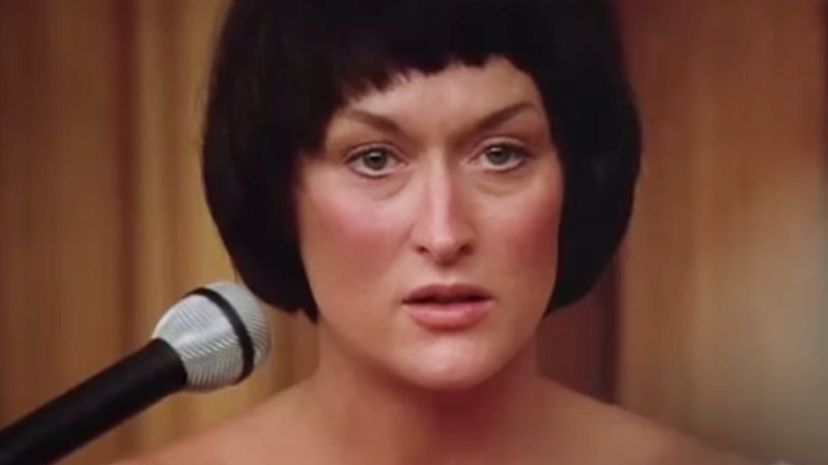
Dingos are wild dogs weighing 35 to 40 pounds that are found throughout Australia. The term became well-known around the globe in 1980 when a woman on a camping trip told police a dingo stole her baby. Though she was tried and convicted for murder, the Aussie government eventually determined that one of these wild dogs most likely did steal and kill her child. The events were dramatized in a 1988 film "A Cry in the Dark," starring Meryl Streep.
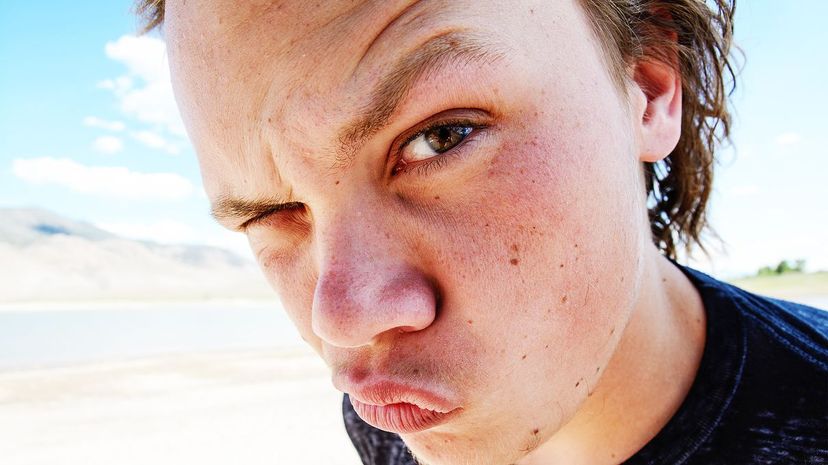
The Violet Crumble has been in production since the 1910s and is one of Australia's most popular candy bars. Despite its name, this bar actually consists of honeycomb toffee coated in chocolate, and nothing about it is purple. It actually gets its name from its creator, who was inspired by his beloved wife's favorite color when naming the candy.
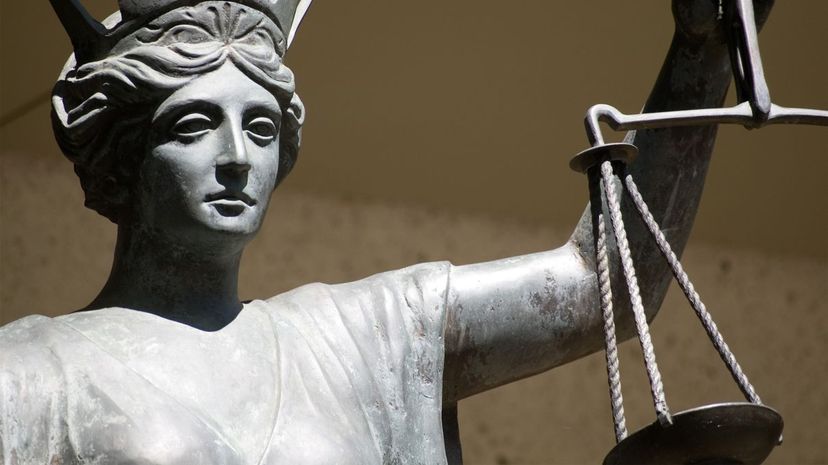
In April 1996, a suicidal man killed more than 30 people near Port Arthur in Tasmania using a semi-automatic rifle. The event inspired huge changes to Australian gun laws as citizens rallied to prevent a similar incident from occurring in the future.
Advertisement
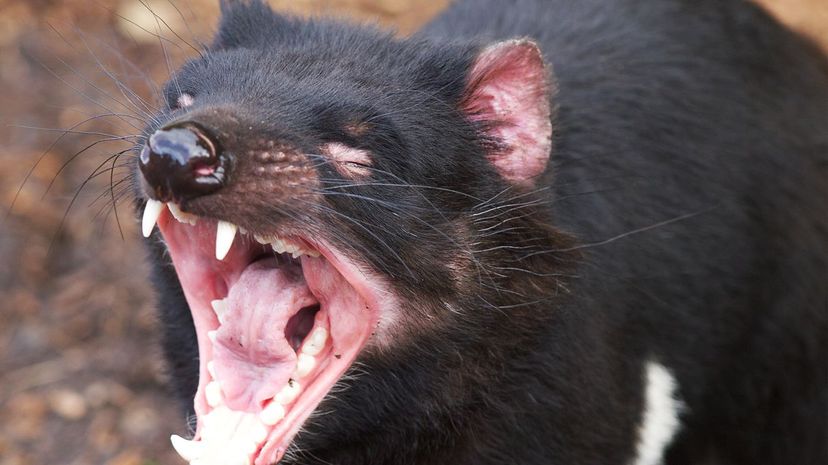
Like many native Australian animals, the Tasmanian Devil is a marsupial. This creature is the size of a small dog and surprisingly fierce. It has a strong bite, a distinctive odor and ranks among the world's largest carnivores.
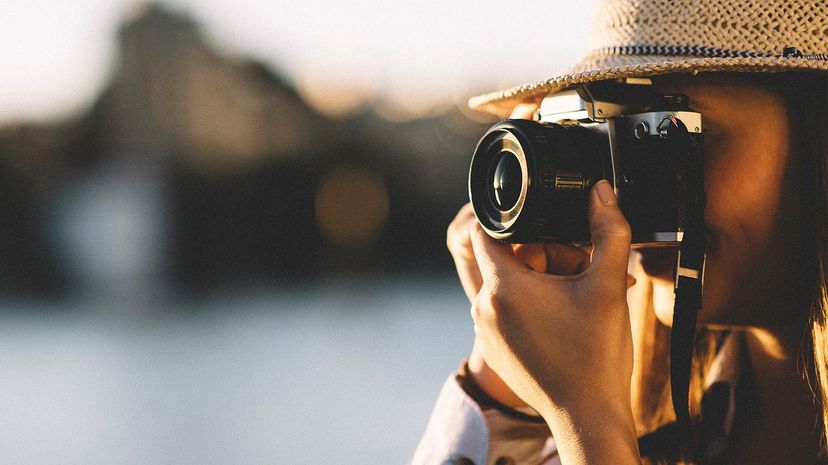
Located off of the iconic Great Ocean Road in Victoria, the Twelve Apostles are a series of limestone spires rising out of the water. Despite their name, there were never more than eight of these rocks, and only seven remain after one collapsed in 2005.
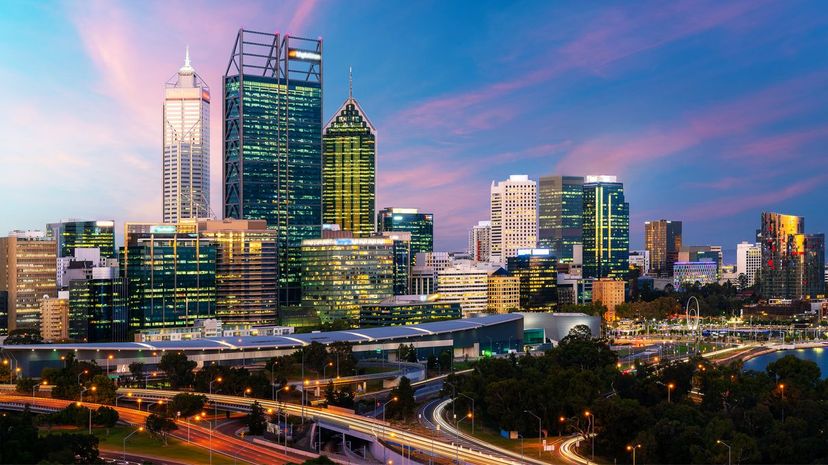
While separated from many other major Australian cities by the Outback, Perth is a large city in its own right. Perth is the fourth-largest city in the country based on population, and it sits along the Swan River on Australia's West Coast. It's named after the city of Perth, Scotland and is the capital of the state of Western Australia.
Advertisement
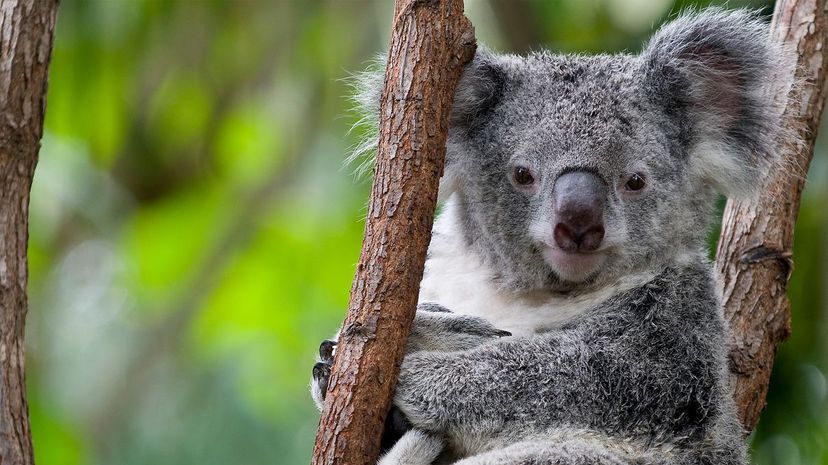
When Koalas aren't sleeping 18 to 20 hours a day, they're chowing down on leaves from the Eucalyptus, or Gum, tree. Thanks to habitat destruction, only between 40,000 and 80,000 of these gentle creatures can be found in the wild, according to the Australian Koala Foundation.